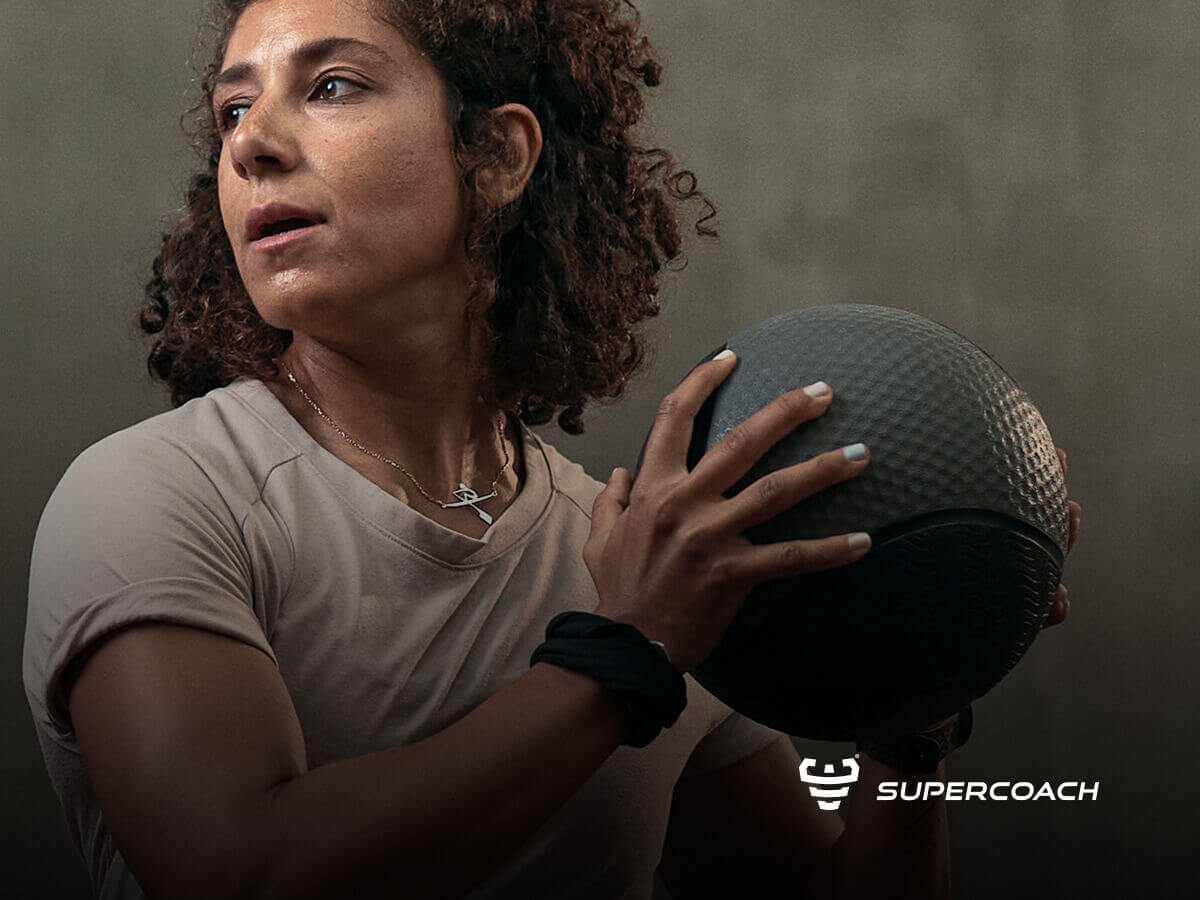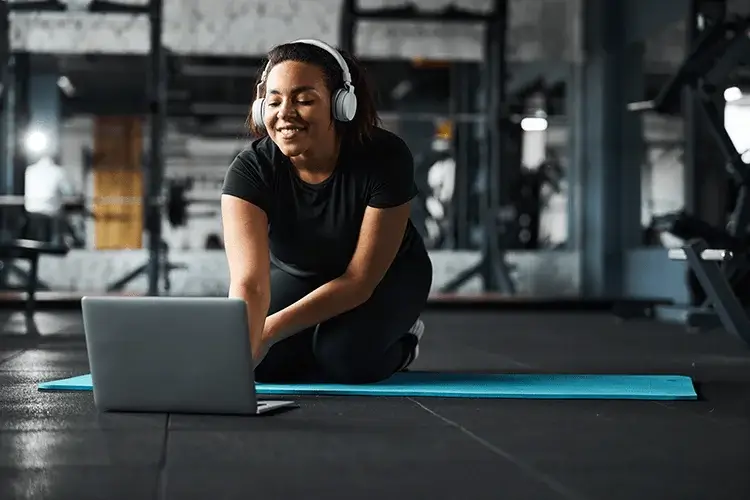From good coach to great coach: 15 skills every personal trainer needs
Trainer Guide
Becoming a successful personal trainer requires more than just a passion for fitness; it demands a unique combination of personal trainer skills that sets you apart in a competitive industry. From mastering communication to understanding the science behind exercise and nutrition, connecting with clients and delivering personalized programs transforms a good trainer into a great one.
Whether you’re just starting your journey or looking to refine your expertise, this article highlights the 15 essential skills every personal trainer needs to thrive, grow their client base, and make a lasting impact in the fitness world.
Begin honing your skills to become the go-to coach people trust to reach their health and fitness goals!

1. Effective Communication Skills
Communication is one of the skills needed to be a personal trainer who can build trusting relationships with existing clients and attract new ones. Clear guidance ensures clients feel supported and confident in their fitness journey.
Personal trainer communication skills appear clearly when explaining exercises. A skilled personal trainer can simplify even the most complex movements into easy-to-understand instructions.
For instance, instead of using technical jargon like “engage your hip flexors,” you can say, “Imagine sitting back into a chair” when coaching a squat.
Effective communication isn’t just about giving directions, it’s equally about listening. When the moment of client feedback comes, you should be focused and paying attention to each word and the given concerns, such as when they express finding a program too easy or too challenging, hence, you can make immediate adjustments to better suit their needs. Active listening helps create a tailored experience and reinforces trust.
Maintaining connection outside of sessions is equally important for client satisfaction. Simple actions such as checking in with your clients, scheduling their next session, or providing encouragement in between sessions can develop the link and reflect your commitment to their progress.
2. Empathy and Emotional Intelligence
Mastering empathy and emotional intelligence is not just good for client retention,it sets you apart in the competitive fitness industry. This is what makes Empathy one of the skills required to be a personal trainer!
These skills go beyond technical expertise, they allow you to connect with clients on a deeper level, understanding their unique challenges and motivations.
Imagine a client expressing frustration over their progress. Instead of brushing off their concerns with a quick “You’re doing fine,” take a moment to acknowledge their feelings. Saying something like, “I hear you, it’s tough when the progress doesn’t feel obvious. Let’s look at what’s working and where we can tweak things to get you closer to your goal,” shows you care and are invested in their journey.
Emotional intelligence complements empathy by helping you read between the lines. Sometimes clients won’t say they’re feeling stressed or unmotivated, but their body language or tone will tell you everything.
Picking up on these cues allows you to adapt your approach, whether it’s easing into a session or offering words of encouragement that resonate in the moment. Clients remember how you make them feel, this emotional connection is often the reason they stay committed to their fitness goals.

3. Motivation skills: The soft power behind success stories
Motivational skills are the driving force behind a client’s success. As a personal trainer, you’re not just guiding workouts; you’re inspiring belief in their potential, especially when they struggle to see it themselves.
Adapting your approach to match a client’s mood or energy level can also make a big difference. Some days, they’ll come in ready to conquer the world; other days, they’ll need extra encouragement just to start.
The key lies in making motivation personal. Generic phrases like “Good job!” may feel supportive, but specific praise is far more impactful. Instead, say, “Your plank form has improved so much, your core strength is really showing!” This level of detail demonstrates that you’re paying attention and that their hard work is being noticed. Clients are more likely to stay committed when they feel their progress is genuinely valued.
Small wins are another powerful motivator. For clients working on long-term goals, progress can feel slow, and frustration can creep in. Highlighting milestones, like improving their lifting technique or completing an extra set, keeps their momentum alive. Remind them that every step counts and that consistency is the foundation of success.

4. Technical Knowledge of Exercise Science
Technical knowledge of exercise science is one of the most wanted hard skills for personal trainer and the backbone of every great personal trainer.
Your understanding of anatomy, physiology, and biomechanics isn’t just about showcasing expertise, it’s about delivering results safely and effectively.
Clients trust you because the knowledge ensures you’re always up to the task, whether it is unique goals or fitness levels. Here are some cases that show the significance of acquiring these kinds of skills and qualities of a personal trainer:
A. Knowing how the body moves
This allows you to design training plans that are not only effective but also tailored to individual needs.
For instance, understanding biomechanics helps you correct improper form, which prevents injuries and enhances performance. Instead of merely saying, “Squat deeper,” you can guide your client with, “Keep your knees tracking over your toes to protect your joints and engage the right muscles.”
This type of precise feedback builds confidence in your clients and sets you apart as a professional.
B. Injury prevention knowledge
By recognizing early signs of overtraining or poor movement patterns, you can adjust routines proactively. For example, if a client complains about lower back discomfort during deadlifts, your understanding of anatomy allows you to modify the exercise or suggest an alternative that avoids strain while still targeting the same muscle groups.
C. Nutrition basics are equally critical
While personal trainers aren’t licensed to create detailed meal plans unless they have additional certifications, a foundational understanding helps you support clients holistically. Offering tips like emphasizing protein intake post-workout or explaining the importance of hydration complements their fitness efforts and rounds out your role as a trusted coach.
How To Keep Your Technical Knowledge Up?
To stay at the top of your game, continuous learning is non-negotiable. Fitness science evolves rapidly, and so should your knowledge.
Certifications like ACE or NASM provide an excellent foundation, but the best trainers regularly attend workshops, dive into new research, and even explore specialized areas like mobility training or functional fitness.
This ongoing education not only keeps your methods effective but also demonstrates your commitment to excellence.
How Much Technical Knowledge Do You Really Need?
Enough to create a safe and effective experience for every client, but the learning never stops. Whether you’re working with a beginner learning their first push-up or an athlete fine-tuning their performance, your ability to blend science with coaching makes all the difference.

5. Adaptability and Flexibility
Adaptability and flexibility are two of the most essential skills you can bring to your position as a personal trainer.
Every client is unique, and even the same client will not always appear in the same physical or emotional state on any given day. Being adaptive allows you to tailor your approach to meet your customers where they are.
Furthermore, it is not restricted to client interaction; rather, this is a talent you will require depending on your level as a personal trainer and your client retention rate.
What are the challenges (handling the unexpected) that face the personal trainers and coaches?
A client might feel tired, sore, or even stressed. Instead of sticking rigidly to the original workout plan, listen to their feedback and assess their readiness for the session. If they’re low on energy, you could shift the focus to a refreshing workout, like mobility exercises or core work, instead of pushing them through a high-intensity session.
These adjustments show that you prioritize their well-being over rigid goals, building trust and loyalty.
Flexibility is considered one of the most required personal trainer skills especially when working with diverse client populations. Whether you’re training an athlete preparing for a competition or a beginner learning basic movements, flexibility allows you to customize programs that align with their unique abilities and goals. For example, you might need to modify exercises for a client recovering from an injury or create a workout that fits a busy parent’s limited schedule. These small adjustments make a huge difference in your client’s ability to stay consistent and progress over time.
Even outside of the gym, adaptability plays a critical role. like a trainer, you may need to swiftly transition to online coaching (like Supercoach does), design home-based workouts, or change schedules owing to a client’s changing availability. Being adaptable in how you provide your services guarantees that you stay a trusted and valued resource, regardless of the circumstances.

6. Patience and Understanding
Patience and understanding are key skills for personal trainers. Progress varies greatly between clients, and it’s your role to provide steady guidance, even when results take time. Frustration can derail motivation, but your calm reassurance keeps clients focused on the journey, not just the destination.
Celebrate every win, no matter how small. A client might not see drastic changes on the scale, but pointing out their improved form, increased stamina, or dedication to consistency reinforces their progress. For instance, saying, “Your push-up depth has improved so much، great work!” can boost their confidence and commitment.
When setbacks occur, approach them with compassion rather than judgment. A missed session or lapse in diet doesn’t define their journey. Instead, offer understanding and help them refocus on their goals with positivity.
7. Professionalism and Ethics
Professionalism and ethics are the pillars of a successful personal training career. From being punctual to dressing appropriately, every interaction reflects your commitment to excellence and builds trust with your clients. Professionalism isn’t just about appearances; it’s about consistently delivering on your promises and maintaining a respectful, reliable demeanor.
Ethics are equally vital. Respecting client confidentiality and adhering to industry guidelines ensure a safe and trustworthy environment.
For example, never share client progress photos or details without explicit permission. These small but significant actions set you apart as a trainer who values integrity as much as results.
8. Business and Marketing Acumen
Personal trainers must have strong business and marketing skills. Beyond providing excellent workouts, you must effectively recruit, engage, and keep clients. abilities such as handling funds, setting reasonable charges, and scaling your services guarantee that your business is sustainable, making mastering business and marketing one of the most important personal trainer skills and qualities to possess.
Social media is a powerful tool to showcase your expertise. Highlight client success stories (with permission), share behind-the-scenes glimpses of your training style, and let your personality shine. Authentic, relatable content builds trust and attracts the right audience.
Social Media Marketing
- Share customer success stories (with their permission).
- Post clips of your coaching style behind the scenes.
- Let your personality shine through with content that is authentic and close to the audience.
This type of content builds trust and attracts the right customers who identify with your style.
Guaranteed Brand Building Strategies
- Testimonials and recommendations: Use customer success stories to establish your credibility.
- Engaging social media posts: Make it your way to reach potential customers.
- Loyalty and rewards programs: Offer rewards to loyal customers who bring in new ones.

9. Time Management
Managing your time properly is one of the most important abilities for a personal trainer. The duties can seem never-ending, from juggling a full client calendar to designing programs and keeping up with administrative tasks. However, with the correct technique, you can conserve your energy, better serve your clients, and expand your business without feeling overwhelmed.
Time management is an important personal trainer skills and abilities that you should focus on to become a regular part of your everyday routine.
Here are some time management tips as a professional personal trainer:
1. Focus on What Truly Matters
It’s easy to get caught up in small tasks that don’t add real value. Instead, prioritize actions that directly impact your clients and business.
2. Streamline Your Scheduling
A reliable system for organizing sessions, tracking client progress, and managing tasks is a game-changer. Digital tools like training apps or simple calendars help you avoid double-booking or forgetting important deadlines, giving you more mental space to focus on what you love, training.
3. Dedicate Time for Key Tasks
Block off specific hours in your day for essential activities, like creating programs or marketing your services.
4. Make Time for Yourself
Your energy and well-being are just as important as your clients’. Whether it’s scheduling your own workouts or simply carving out time to unwind, keeping yourself refreshed ensures you’re able to perform at your best.
10. Problem-Solving Abilities
As a personal trainer, your ability to solve problems on the spot can make or break your client’s experience. From modifying workouts to addressing unexpected hurdles, effective problem-solving shows clients that you’re not just another trainer, you’re an expert committed to their success.
For instance, imagine a client struggling with a specific exercise or finding it uncomfortable. Instead of insisting they stick to it, offer a creative alternative that targets the same muscle group or goal.
Sometimes, problem-solving extends beyond exercises. Maybe a client’s schedule changes, and they can no longer stick to their regular time slot. Flexibility, combined with a well-structured plan, allows you to adapt without compromising results.
The best trainers don’t see challenges as setbacks, they see them as opportunities to innovate and refine their approach. This mindset is what transforms a good trainer into a SuperCoach.

11. Physical Fitness and Demonstration Capability
As a personal trainer, your physical fitness and demonstration abilities aren’t just tools of the trade, they’re part of your brand. They reinforce your credibility, inspire trust, and ensure your clients see you as the expert they need to achieve their goals. By leading from the front, you not only build stronger relationships with your clients but also elevate the standards of what it means to be a SuperCoach.
One of the most impactful ways to lead by example is through your demonstration skills. When coaching exercises, your ability to showcase proper form sets the standard for clients to follow
- For example: When explaining the squat, your exemplary performance shows the client the correct form to strive for.
- Or when teaching them how to engage their core muscles during a plank, your demonstration provides them with a practical guide to optimize their performance.
12. Continuous Learning and Self-Development
To ensure a profitable career plan these days, self-development is one of the personal trainer skills needed, in addition to blending with your attitude, whether in the fitness business or any other field.
By committing to continuous learning, you ensure your methods remain relevant, effective, and in line with the latest fitness industry standards.
Seasoned trainers understand that professional growth isn’t optional; it’s essential. Whether it’s attending workshops, completing new certifications, or diving into the latest fitness studies, staying updated shows your clients that you’re serious about delivering the best possible service. For example, incorporating emerging techniques like mobility training or specialized recovery methods can set you apart as an expert who goes beyond the basics.
Continuous learning also boosts your confidence as a trainer. When you’re well-versed in the latest techniques and backed by credible certifications, you can approach every client with fresh strategies tailored to their needs. It also demonstrates to your clients that you’re not just committed to their growth, you’re also invested in your own.

13. Leadership and Confidence
As a personal trainer, your leadership shapes your client’s fitness journey, and your confidence reinforces their trust in your abilities. Clients look to you for guidance, motivation, and reassurance, especially during challenging moments. Your ability to lead with clarity and confidence helps them feel secure in their progress.
A positive attitude is your secret weapon. Even when sessions get tough, staying composed and encouraging inspires clients to push through their limits. Confidence isn’t just a trait, it’s contagious, empowering your clients to believe in their potential and trust the process.
14. Attention to Detail
In personal training, the smallest details can make the biggest difference. Noticing subtle cues like improper form or signs of discomfort isn’t just about fine-tuning, it’s about ensuring your client’s safety and maximizing their progress.
For example, correcting a client’s posture during a deadlift doesn’t only protect their lower back; it also helps them engage the right muscles for better results. This attention to detail shows clients you’re invested in their success, building trust and credibility along the way.
15. Interpersonal Skills
Personal training goes beyond fitness, it’s about forming meaningful relationships with your clients. Trust and connection are the foundation of a successful trainer-client partnership, encouraging clients to stay committed to their goals and your guidance.
Empathy: Deeply understanding customer needs
- An important rule is that empathy is a key element in building the relationship between the personal trainer and the client.
- Understanding your client’s challenges, whether it’s self-doubt or the difficulty of a particular exercise, shows that you are genuinely committed to their journey to success.
Clear communication and prompt response
- Making sure your customers feel heard and supported enhances their experience with you.
- Your ability to read non-verbal cues, such as hesitation or discomfort, enables you to adjust your approach in real-time to better meet their needs.

As previously mentioned, a successful personal trainer needs the right resources and tools to enhance their work and support their journey toward achieving success.
We invite you to explore SuperCoach and discover the valuable tools it provides to help you expand your client base and manage them more efficiently and professionally.
